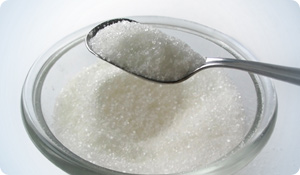
It's three hundred times sweeter than table sugar, it doesn't add any calories, and it doesn't cause a lot of unpleasant side effects. So is Stevia a sweet dream come true for people with diabetes?
"There have been pros and cons about it over the years," says Daniel Baxter, MD, chief medical officer of the Ryan Community Health Center in New York City. "But the FDA has said that it's okay to use and classified it as 'generally recognized as safe.' "
The FDA-approved sugar substitute is made from the leaves of a South American shrub and it's marketed under such names as PureVia and Truvia.
After getting FDA approval in 2008, Stevia started turning up in soft drinks and other products. It's also a table sweetener that joins other non-caloric sweeteners such as aspartame, sucralose and saccharin. Stevia now is used in energy bars, protein drinks and an array of teas.
Used for years in Japan as a sweetener, where it is put into in gums, candies and drinks, Stevia also is used in China and South America. However, it is still not approved for use in Europe. Stevia can have an almost licorice-like flavor that some people find pleasing while others don't like it.
As for its nutritional profile, Stevia has zero calories, versus 32 calories for 2 teaspoons of sugar. Nutrasweet (the brand name for aspartame), Splenda (the brand name for sucralose) and Sweet 'N Low (the brand name for saccharin) have no calories either. Stevia has zero grams of carbs, versus 8 carbs for 2 teaspoons of sugar, 1 gram for Nutrasweet, 1 gram for Splenda, and 1 gram for Sweet 'N Low.
Sugar ranks 70 on the glycemic index and Stevia, Nutrasweet, Splenda, and Sweet 'N Low all rank zero. The glycemic index (GI) measures how fast a particular food raises the blood sugar.
Stevia hasn't been on the market for as long as the other non-caloric sweeteners, and its longterm safety has yet to be firmly established. "It is still fairly new," says Caroline Bohl, MS, RD, CDE, a nutritionist at NewYork-Presbyterian Hospital/Columbia in New York City. "It does not raise the blood sugar, so it can be used by people with diabetes."
Notes Baxter: "It is probably safe, but we still don't have a lot of information on it."





